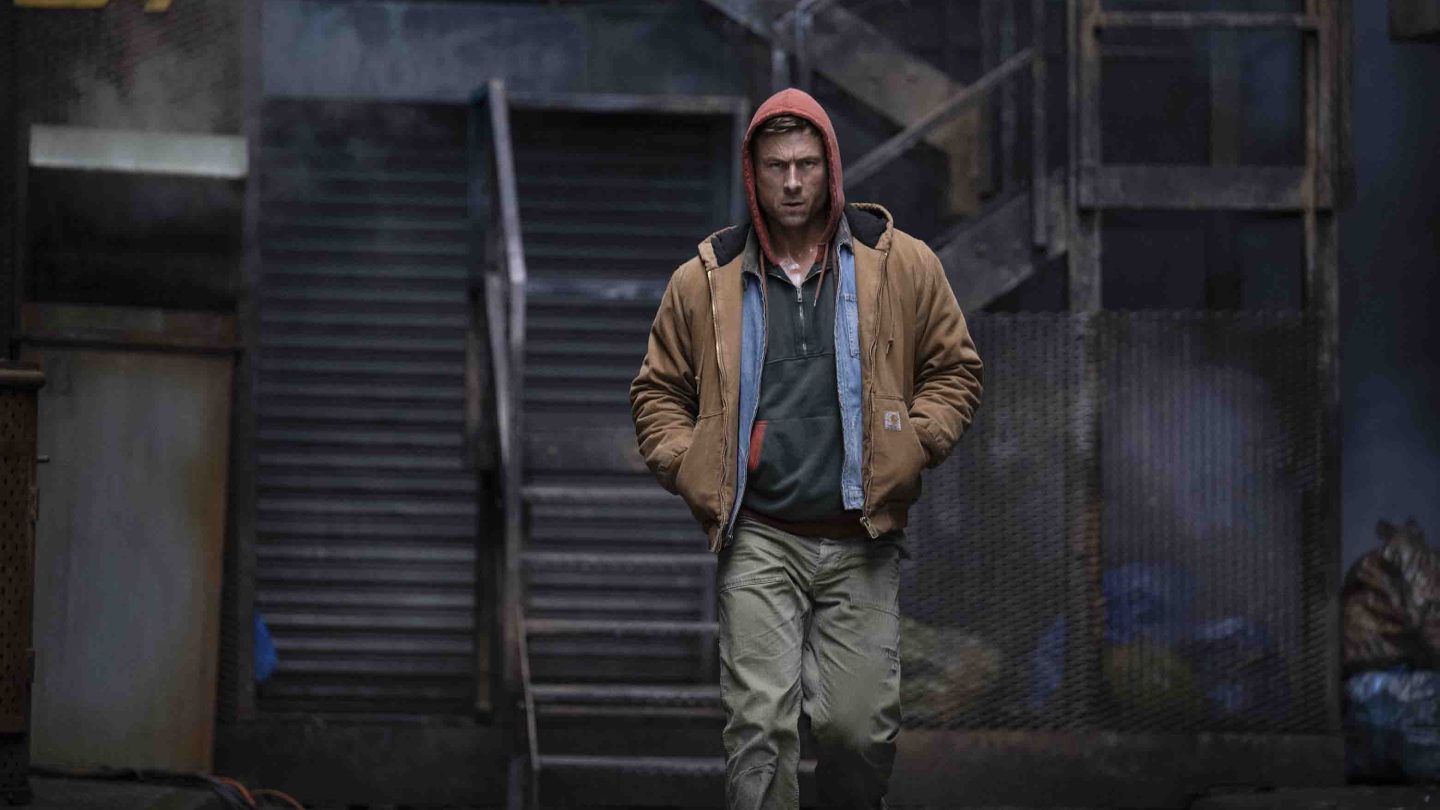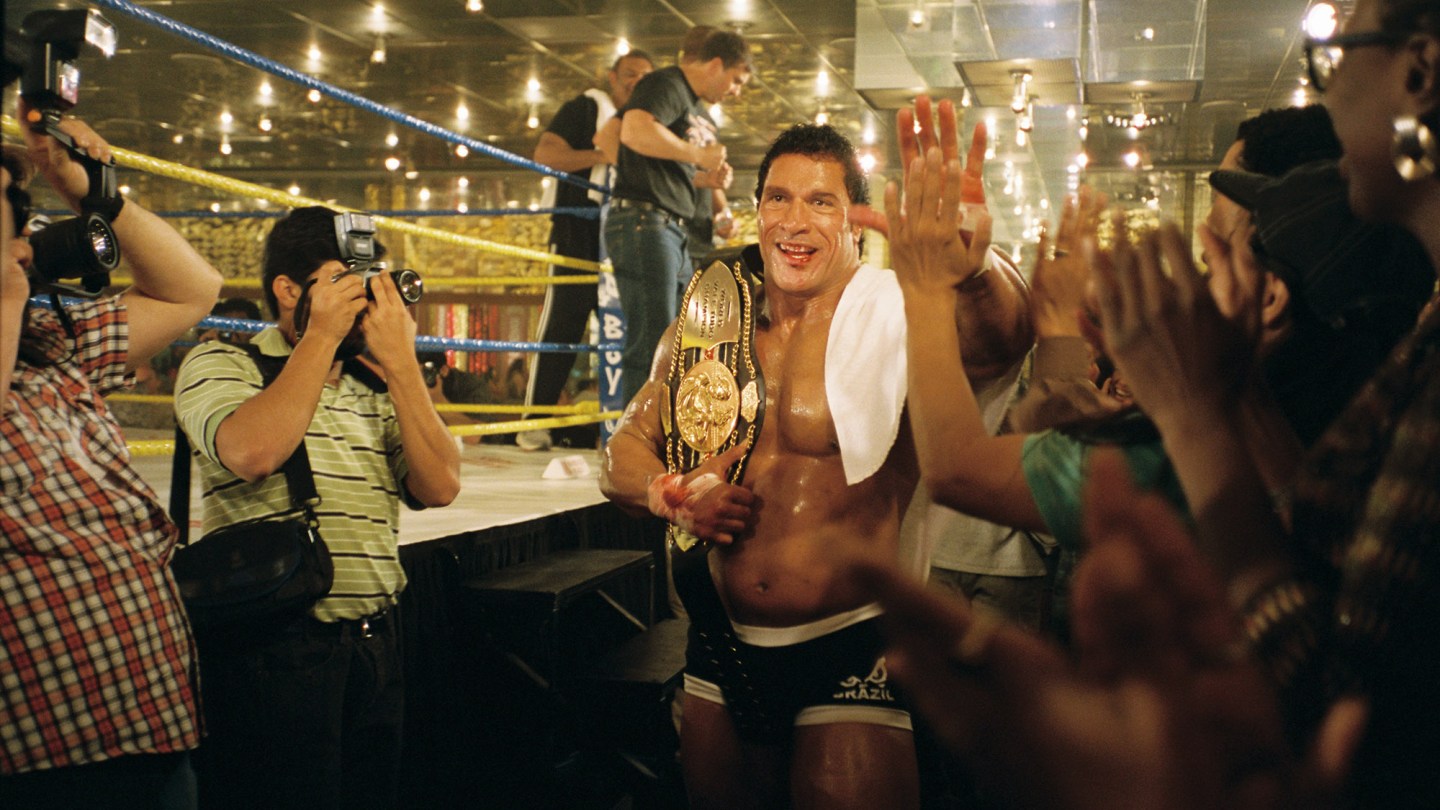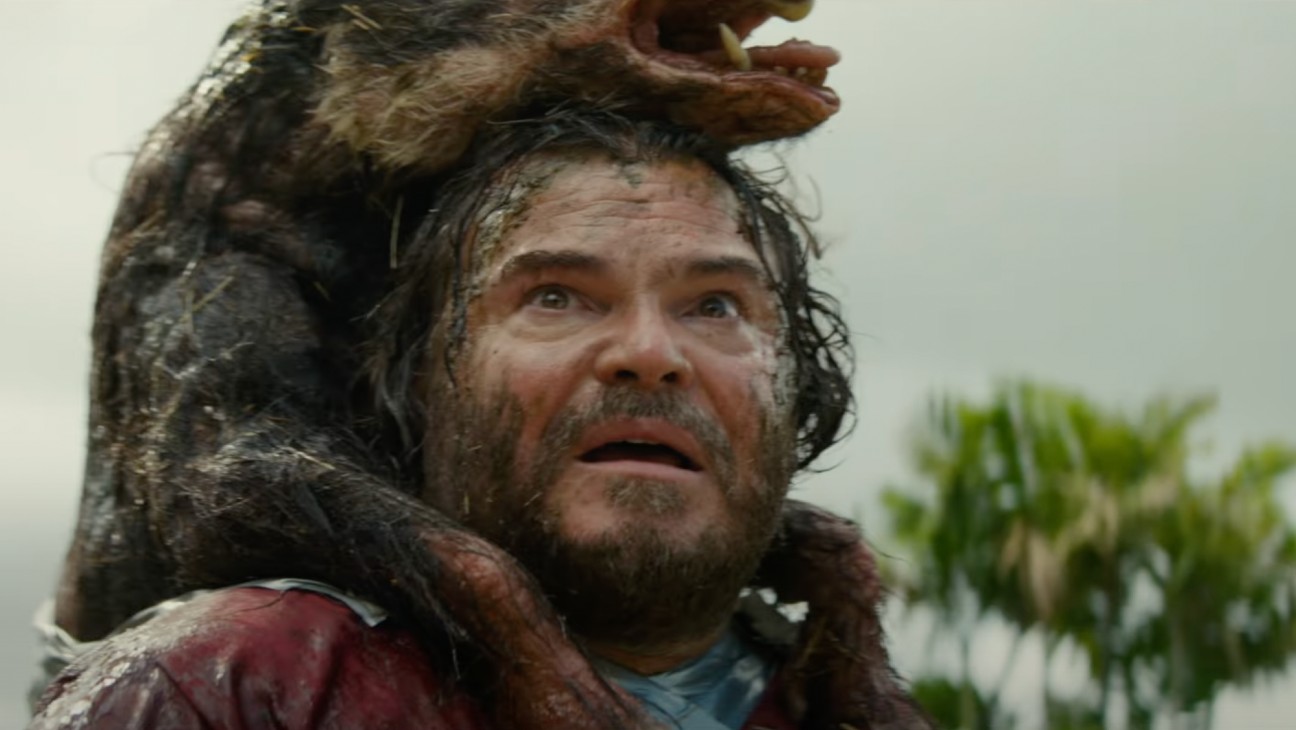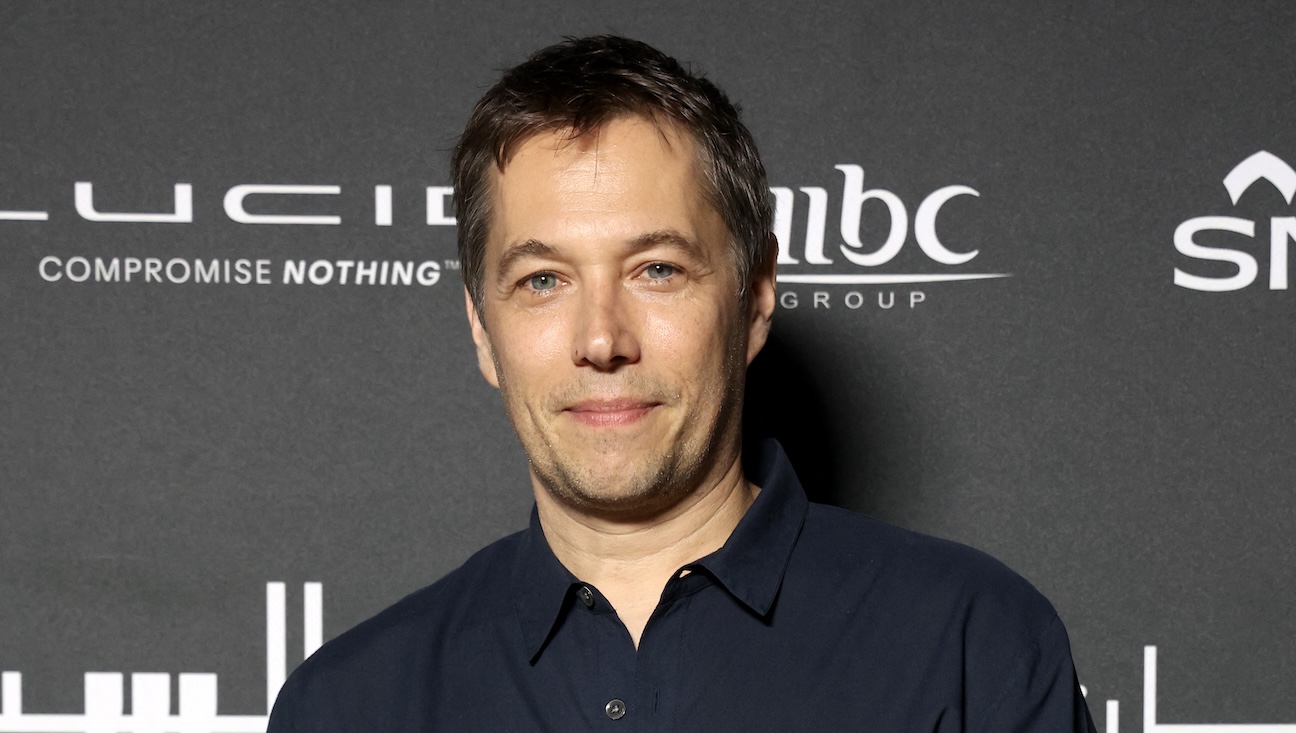Stephen King’s 1982 novel, The Running Man, imagined an authoritarian America in 2025, ruled over by a giant corporation that controls the flow of information while keeping the underclass in its place. Unless they qualify as contestants on one of the violent game shows aired on the all-powerful Network’s Free-Vee platform, which serves up a mix of propaganda, Real Housewives-adjacent inanity and gladiatorial spectacle to entertain the masses and discourage them from thinking about how ruthlessly the system is stacked against them.
The book’s time frame now converges with our own, while the distance has also shrunk between the dystopian world it depicts and present-day reality. The prescience of King’s sci-fi volume, originally published under the pseudonym Richard Bachman, is undeniable. Its contemporary relevance should translate to a heightened sense of urgency. But Edgar Wright’s update of the 1987 Arnold Schwarzenegger vehicle of the same name, while it has no shortage of action and adrenaline, ends up feeling hollow. It also fails to erase lingering doubts about Glen Powell’s viability as a leading man.
The Running Man
Running on empty.
Written by Wright with his Scott Pilgrim vs. the World collaborator Michael Bacall, the new version hews far more closely to the source material than its predecessor. But the jokey qualities and irreverent personality that have energized Wright’s best films sit somewhat awkwardly against the grim picture of class and wealth inequality, poverty, inadequate healthcare and oppressive law enforcement. It’s somehow both fast-moving and lumbering, exciting and numbing. I was with it for a good while, but it wore me down.
Ben Richards (Powell) has a spotty employment record with reports of insubordination frequently earning him a pink slip. He’s a hothead who was blacklisted by his last employer for intervening to save co-workers in a life-threatening situation and now desperately needs work to buy meds for his sick two-year-old daughter. A flu strain is one of several things killing off the poor, who struggle to meet the high cost of pharmaceuticals and frequently must settle for temporary relief from black market drugs.
Reluctant to let his exhausted wife Sheila (Jayme Lawson) work back-to-back shifts waitressing at a seedy club for wealthy men, Ben makes an impulsive decision to apply at the Network for a spot on one of the shows. Sheila makes him promise he will not sign up for the ultra-violent top-rated contest, The Running Man, which offers $1 billion in prize money that no one has ever gotten far enough to claim.
Even the tamer shows are cause for concern, like Spin the Wheel, which puts quiz contestants in a large hamster wheel that accelerates with every incorrect answer, resulting in injuries or worse. An unrecognizable Sean Hayes plays the jeering host, Gary Greenbacks.
The long, snaking lines of people queueing to apply suggest that half the country is in a similar position to Ben, struggling to provide for their families. But his quick temper gets him fast-tracked upstairs to undergo rigorous physical and mental aptitude tests used to decide which show is the best fit for each potential contestant.
Naturally, Ben qualifies for The Running Man, along with punky queer daredevil Jenni (Katy O’Brian) and scrawny goofball Tim Jansky (Martin Herlihy), clearly earmarked for early elimination. Later, it’s explained that contestants are chosen according to three different character types — the “Hopeless Dude,” who usually lasts less than 48 hours; the “Negative Man,” who just wants to go out in a blaze of glory; and the self-explanatory “Final Dude.” It’s not hard to guess who’s who in Ben’s group.
Determined to honor his promise to Sheila, Ben rejects the selection offer, but Network head Dan Killian (Josh Brolin, making a colorless villain) proves persuasive. He uses intimate knowledge of Ben’s personal situation to make the show seem his best chance of getting his family out of Slumside. Ben is told during the selection process that he’s “the angriest man ever to audition,” and assured by Killian, who prides himself on his nose for talent, that he has what it takes to go the distance.
The distance in this case is 30 days, during which the contestants must stay alive while being pursued by a kill team known as the Hunters, led by the fearsome masked McCone (Lee Pace, wasted). Unlike the 1987 film, in which the endurance test took place within a sprawling confined space, the arena here is the entire fictional Co-Op City and beyond, with the contestants’ faces plastered on every screen.
The television studio serves as the Colosseum, with a live audience whipped into a frenzy and shrieking for blood while following the action on a jumbo screen. The folks at home are also encouraged to play for cash prizes through the “Record and Report” program, in which anyone who sights a contestant can become an informant. The popular host of The Running Man is Bobby T. (played to the hilt by Colman Domingo), a slick showman whose commentary is both unctuous and sadistic. He takes special delight in reading contestant bios that paint them as depraved villains, which is pure fiction.
Having waded through the elaborate setup and established the stakes with his customary jazzy energy and sharp visuals, Wright then slips into an episodic rut. Ben manages to stay one short step ahead of the Hunters despite some very close calls, but there’s a rote feel to the action as he hops a train first to New York and from there to Boston.
He gets help along the way from various citizens running their own resistance campaigns to thwart the exploitative Network and expose its corruption — Molie (William H. Macy), a crotchety underground anarchist who supplies Ben with disguises and fake IDs; cool-headed radical Bradley (Daniel Ezra), aka “The Apostle,” who posts incendiary anti-establishment videos; and dedicated rebel Elton (Michael Cera), who provides a safe house for Ben but proves an unpredictable ally.
Cera (reuniting with his Scott Pilgrim director and writer) gets laughs from the livewire subversive, for whom the thrill of taking out a law enforcement goon squad outweighs the risk. But the secondary characters generally are not sufficiently developed to leave much of an impression. That also includes Sheila and Amelia (Emilia Jones), a realtor from a privileged background, taken hostage by Ben in a carjacking, which ends up opening her eyes.
That leaves an awful lot resting on Powell’s shoulders. He’s the engine in just about every scene, and his hard-driving physicality suggests the influence of Tom Cruise’s mentorship, not least in a climactic sequence on a plane with a lethal crew. But Powell has more easygoing charm than blinding charisma. He throws himself into the bloody, brutal action, and the ferocious determination of Ben. But he lacks the certain spark to make the character a standout everyman hero, even if his endurance and his refusal to bow to Killian’s demands turn public opinion in his favor.
Powell is a good sport about playing along with his hot hunk persona in a scene during which the Hunters descend on Ben in a dive hotel, just as he’s on his way to the shower, wrapped only in a low-slung towel. Which of course falls off, but don’t get too excited, that’s where the careful noirish lighting comes in. The actor’s most memorable performances remain in Top Gun: Maverick and two Richard Linklater films, Everybody Wants Some!! and Hit Man.
Perhaps the real disappointment is that this is more of a journeyman effort from Wright than usual, without the ricocheting momentum and clockwork precision of Baby Driver or the dazzling style and enveloping mood of Last Night in Soho.
Here and there, you can see the director itching to have more fun with the material, for instance in a quick shot of the TV studio dancers that instantly evokes the Lycra-clad showgirls of the Arnie version with their obscene Paula Abdul choreography. But Wright seems almost constrained by a film that ends up neither as compelling nor as deep nor as wildly entertaining as it seems to believe. It does, however, have a cute cameo or two, including Schwarzenegger as the face on the $100 bill.





